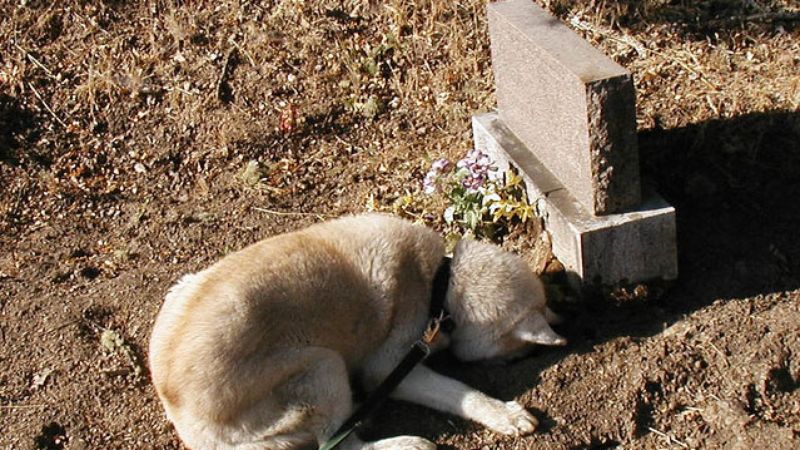Meet Bailey. He’s a husky who has stayed by his owner and best friend Jacob Turner’s grave for nearly 10 years. It would be easy to call this scene a heartwarming testament to man and dog’s amazing bond, but that is just covering up a larger problem: There is a severe lack of canine grieving resources in America.
The cold truth is, dogs like Bailey refuse to leave their owners’ graves day after day, because they have nowhere else to go. In the past 15 years alone, America has fallen far behind the rest of the world in adequate canine grieving infrastructure, leaving thousands of emotionally damaged dogs with nowhere to turn outside of a handful of canine grief counseling centers.
Beyond that, the waiting list to get an appointment at one of these underfunded facilities is staggering: Of the 90,000 grieving dogs currently in need of treatment across America, fewer than 30,000 were able to get help of any kind in the past six months.
In Scandinavia, grieving dogs are given a minimum 32 weeks of counseling and monthly check-ins for up to 15 years, all at no cost to them. In fact, throughout Europe, Asia, and South America, countries are devoting more resources for dogs that have recently lost an owner. According to most recent reports, even the small percentage of bereaved American dogs who are able to afford treatment at a grief counseling center typically deal with poorly trained psychiatrists, limited numbers of support groups, and a host of other issues.
Bailey has become something of a celebrity in his town. Locals often come by the cemetery to pet, feed, and walk him. This kind of disturbing treatment highlights why the time for change is now. Our grieving dogs don’t need tummy rubs or bowls of food. They need highly trained psychiatric professionals to diagnose and treat their serious mental disorders. The time for action is now.





